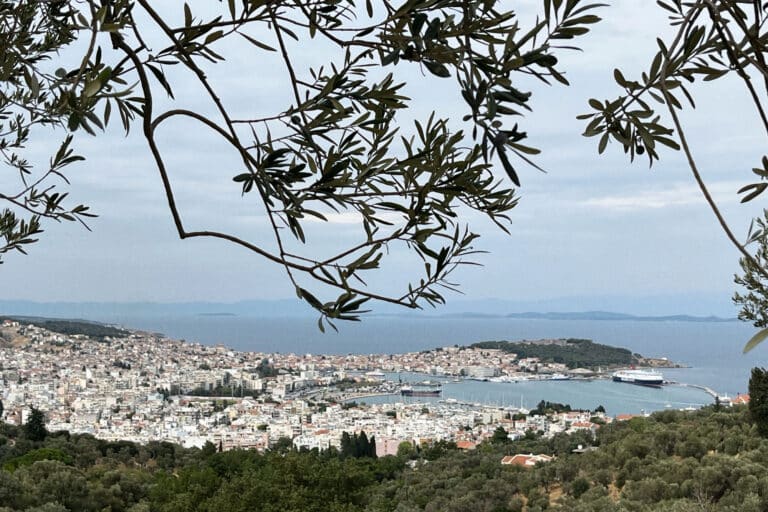CPTnet
19 June 2018
INDIGENOUS PEOPLES SOLIDARITY REFLECTION: Being wise as serpents amidst the politics of (w)rec(k)onciliation
by Chuck Wright – full-time member of CPT-Indigenous Peoples Solidarity team
On 30 May, participants of the Pilgrimage for Indigenous Rights sat with anticipation in the classroom of University Blue Quills – a former residential school – as we waited for Members of Parliament to cast their vote for Bill C-262 for the 3rdvote in the House of Commons. Admittedly, my excitement for the passing of Bill C262 in the House was dampened by listening to PM Justin Trudeau defend the controversial plan to purchase the Transmountain Pipeline for $4.5 billion as he vehemently argued that it’s in “Canada’s national interest.”
Rewind a month. Steve Heinrichs and I traveled to Burnaby Mountain on the invitation of Will George, project leader of Protect the Inlet and member of the Tsleil-Waututh Nation. He extended a call for spiritual leaders and people of faith “to stand with us in our defense of the land and the waters… for the sake of reconciliation and decolonization.” While there, we visited the Protect the Inlet encampment and planned our action with a small group of CPT- and church-affiliated folks to stop vehicles from entering the Kinder Morgan Tanker Terminal on Burnaby Mountain.
On 20 April, our small group engaged in prayerful civil disobedience and prevented vehicles from entering the terminal for over 6 hours. I was able to walk away scot-free, but my friend Steve was charged – along with another 170 land protectors previously charged – and he has come under scrutiny from people in the Mennonite Church he faithfully serves (see https://www.canadianmennonite.org/stories/both-ends-pipeline). Unfortunately, not everyone fully appreciates the important role of civil disobedience, the right to free, prior and informed consent, and the threat fossil fuel industry poses to climate, the land, and its peoples.
During our two-day train ride from Winnipeg to Vancouver, we discussed the potential ramifications of our engagement and the convictions that motivate us to civil disobedience. Steve said, “the Mennonite Church has repudiated the Doctrine of Discovery, that legal fiction which says Christian empires and their successor states, like Canada, have underlying title to the land. We have said that we are going to abide by the principles of the United Nations Declaration on the Rights of Indigenous Peoples. Now, we need to live into these promises in sacred spaces and relationships like this.” The bold action taken alongside other people of faith on 20 May, was a small part of this broader prophetic witness to the death-dealing ways of Kinder Morgan and the Canadian government.
Over the last year, I’ve pondered how easy it is to profess support, in the name of reconciliation, for a piece of legislation that says we want Canadian law to be in harmony with U.N. Declaration on the Rights of Indigenous People when it should have very real implications in how Canada conducts business both figuratively and literally. On 4 June, the MP Romeo Saganash (architect of Bill C262) moved that the House reaffirm its commitment to the UN Declaration on the Rights of Indigenous Peoples, including free, prior, and information consent (Art. 32.2), and the right of First Nations and their representative institutions, such as Union of BC Indian Chiefs, to say “no” to the Transmountain Pipeline Expansion. As Saganash stated in the House, “people who talk about reconciliation cannot just say whatever they please… the Supreme Court wrote that the principle of reconciliation rests on the government’s duty to recognize the pre-existing sovereignty of Indigenous Peoples.”
It is naïve to believe the actions of a settler-colonial, capitalist state will change overnight; they will violate the rulings of the Supreme Court and their own constitution. The Bill itself sets out a 20-year action plan for bringing Canadian law into harmony with UNDRIP, which will require continued attentiveness and diligence in strengthening efforts for progressive legislative change. While at Mannawanis Friendship Center in St. Paul (Treaty 6 territory, Alberta), Mohawk policy analyst Russ Diabo warned us of the threat to self-determination posed by the Liberals’ announced “Recognition and Implementation of Rights Framework” which, he argued, will require grassroots opposition from Indigenous communities and settler allies alike in the coming months.
For me, these developments reemphasize a saying attributed to Jesus to be “wise as serpents” as we anticipate new legislation introduced by the Liberals this Fall. The political context tasks us with being attentive on multiple fronts, building power and support for land-based resistance and grassroots movements at the same time we strategically capitalize on the possibility of progressive legislative change and resist assimilationist policy dressed as reconciliation.



